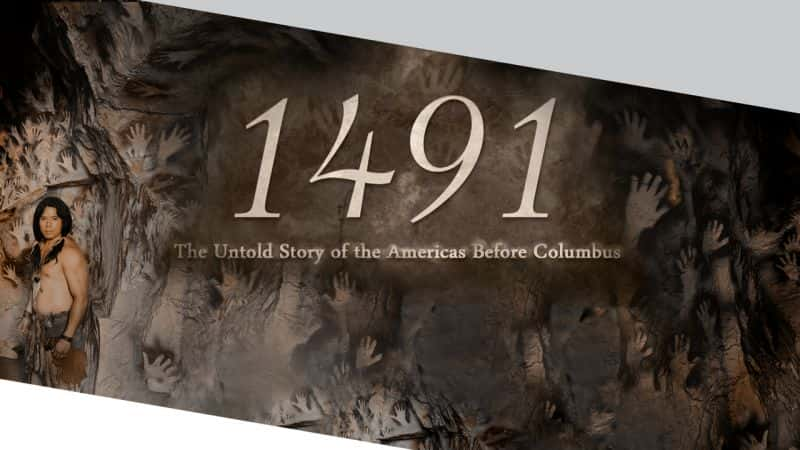
------------------------------------------------------
[ZDF系列]:1491年美洲不为人知的故事1491 the Untold Story of the Americas-1080P高清迅雷网盘下载
------------------------------------------------------
由埃文·亚当斯(Evan Adams)博士主持的社会政治纪录片,由德国电影基金会(ZDF)于2017年出版-英语旁白Sociopolitical Documentary hosted by Dr. Evan Adams, published by ZDF in 2017- English narration
------------------------------------------------------
在这项具有开创性的科学,历史和考古工作中,查尔斯·C·曼恩(Charles C. Mann)彻底改变了我们对1492年哥伦布到达美国之前的美洲的理解。与这么多美国人在学校学到的东西相反,哥伦布前印第安人并没有稀疏地定居。在原始的荒野中?相反,有大量印第安人积极塑造并影响着他们周围的土地。惊人的阿兹台克人首都特诺奇蒂特兰(Tenochtitlan)拥有自来水,街道整洁无比,比任何当代欧洲城市都要大。墨西哥文化是在专门的育种过程中创造出玉米的,这被称为人类基因工程的第一项壮举。确实,印第安人并不是在土地上过着轻松的生活,而是以我们现在才开始理解的方式美化和操纵他们的世界。??起源考古学家,人类学家,遗传学家和语言学家将探讨土著人的创造故事以及关键发现,以了解土著人如何以及何时首次抵达西半球。[编辑]???环境数千年来,土著人对自然产生了重大变化。通过资源采集,耕作,城市发展,灌溉,可控的燃烧和森林砍伐来改善环境。[编辑]???农业和狩猎新石器时代始于中美洲,距今已有一万多年前的玉米种植。像红薯,豆类和可可豆这样的农作物被种植并通过贸易网络在整个美洲传播。??建筑与城市设计无论是游牧生活还是在繁华的市中心,土著人民都创造了标志性,创新和多样化的建筑风格。他们的家园和社区结构满足了社会的需求和价值。[编辑]???治理与贸易每个土著民族都开发了自己独特的治理模型来管理其公民并扩大领土。这些制度包括从父权制和母系制社会到管理多国帝国的复杂政治制度。发展了复杂的贸易网络??以满足政治,社会和经济目标。[编辑]??科学技术最早使用数字“ 0”,行星和恒星的映射,多年历的发展以及书写系统的发明,都发现了土著人民的独创性,技能和才华。[编辑]???艺术与文化通过保存古代文化手工艺品以及当代艺术家以传统风格创作的作品,土著社会的艺术表现一直??延续到今天。[?续]?最后一集着眼于21世纪土著历史的管理。这一集将探讨土著人对文化材料遣返,语言保存,传统知识和考古学的看法。In this groundbreaking work of science, history, and archaeology, Charles C. Mann radically alters our understanding of the Americas before the arrival of Columbus in 1492. Contrary to what so many Americans learn in school, the pre-Columbian Indians were not sparsely settled in a pristine wilderness; rather, there were huge numbers of Indians who actively molded and influenced the land around them. The astonishing Aztec capital of Tenochtitlan had running water and immaculately clean streets, and was larger than any contemporary European city. Mexican cultures created corn in a specialized breeding process that it has been called man's first feat of genetic engineering. Indeed, Indians were not living lightly on the land but were landscaping and manipulating their world in ways that we are only now beginning to understand. Challenging and surprising, this a transformative new look at a rich and fascinating world we only thought we knew.[edit] Origins Indigenous creation stories will be explored as well as key discoveries by archaeologists, anthropologists, geneticists and linguists on how and when Indigenous people first arrived in the Western Hemisphere.[edit] Environment For thousands of years Indigenous people have caused significant changes to the natural environment through resource harvesting, farming, urban development, irrigation, controlled burning and deforestation.[edit] Agriculture and Hunting The Neolithic era began more than 10,000 years ago in Mesoamerica with the cultivation of maize. Crops like sweet potatoes, beans and cacao were cultivated and spread throughout the Americas through trade networks.[edit] Architecture and Urban Design Whether living a nomadic existence or in sprawling urban centres, Indigenous people created iconic, innovative and diverse architectural styles. Their homes and community structures fulfilled the needs and values of their society.[edit] Governance and Trade Each Indigenous nation developed its own unique governance model to manage their citizens and expand their territories. These systems ranged from patriarchal and matrilineal-based societies to complex political systems governing multi-nation empires. Complex trade networks developed to satisfy political, social and economic goals.[edit] Science and Technology The ingenuity, skill and talent of Indigenous people is found in the earliest use of the number "0", the mapping of planets and stars, the development of multi-year calendars and the invention of writing systems.[edit] Art and Culture The artistic expressions of Indigenous societies have survived to this day through the preservation of ancient cultural artefacts and in works created by contemporary artists working in traditional styles.[edit] Continuance The final episode looks at stewardship of Indigenous history in the 21st century. The episode will explore Indigenous perspectives on cultural material repatriation, language preservation, traditional knowledge and archaeology.
------------------------------------------------------
【技术参数】——
技术参数
视频编码: MPEG2 CABAC @Main
比特率: 2.543k
Video 画面比例: 1924 x 576
Video 分辨率: 1.778 (16:9)
音频编码: MPEG-4 AAC LC
Audio English
音频比特率: 192 kb/s VBR 48000Hz
Audio 声道数: Stereo 2
时长: 49 mins average
帧速率: 25. 帧速率
分集数: 8
编码器 MKV
体积: 950 MB average
来源: SDTV
编码: Visper【Technical Specs】——
Technical Specs
Video Codec: MPEG2 CABAC @Main
Video Bitrate: 2.543k
Video Aspect Ratio: 1924 x 576
Video Resolution: 1.778 (16:9)
Audio Codec: MPEG-4 AAC LC
Audio English
Audio Bitrate: 192 kb/s VBR 48000Hz
Audio Channels: Stereo 2
Run-Time: 49 mins average
Frame rate: 25. Fps
Number of Parts: 8
Container MKV
Part Size: 950 MB average
Source: SDTV
Encoded by: Visper
------------------------------------------------------
相关纪录片:
----------------------------------
Links
Further Information
IMDB
Release Post
MVGroup.org (torrent)
Related Documentaries
Walking the Americas
Ancient Mysteries: Americas Hidden Pyramid City
America before Columbus (NGC HD)
Great Plains: America's Lingering Wild
Lost Kingdoms of Central America
Ice Age Columbus
------------------------------------------------------
------------------------------------------------------
纪录片部落下载地址:
|